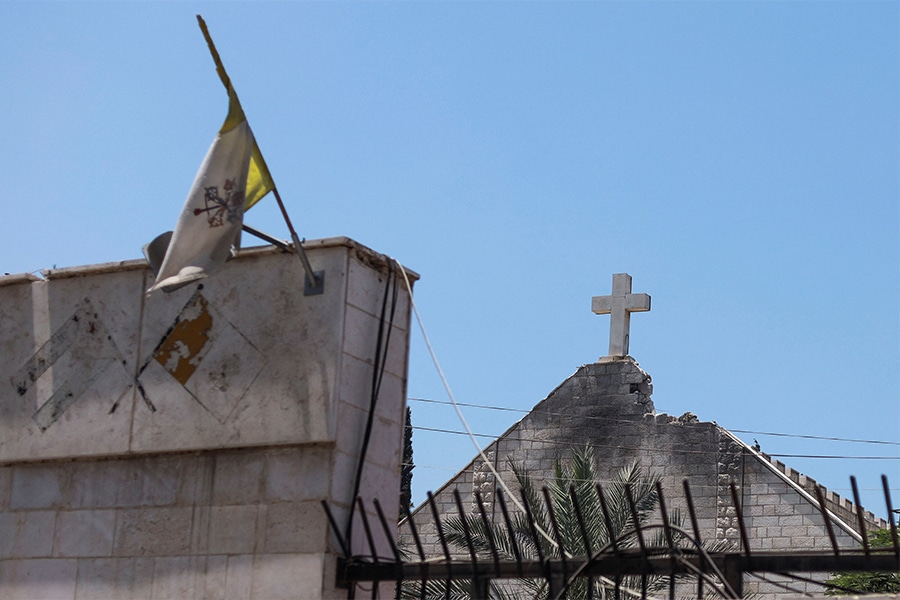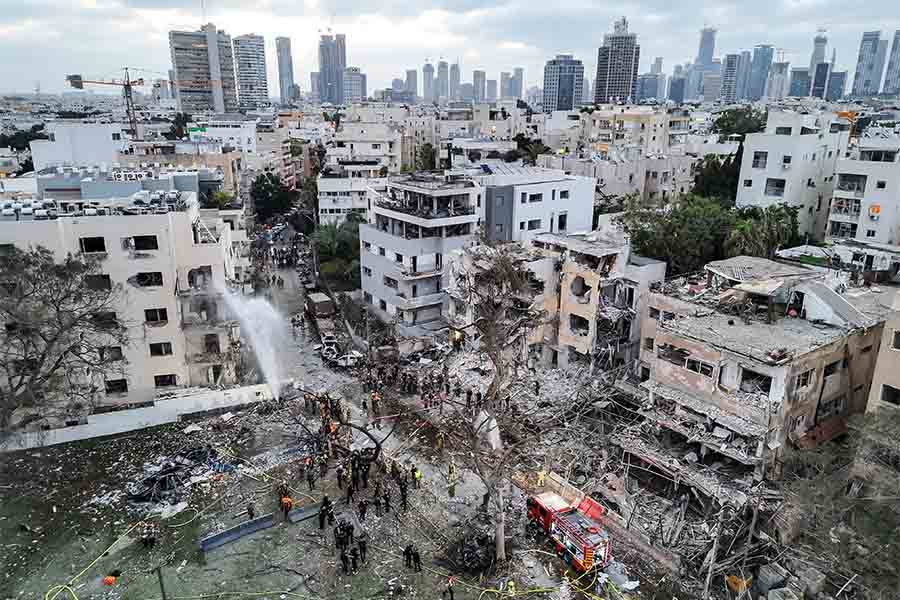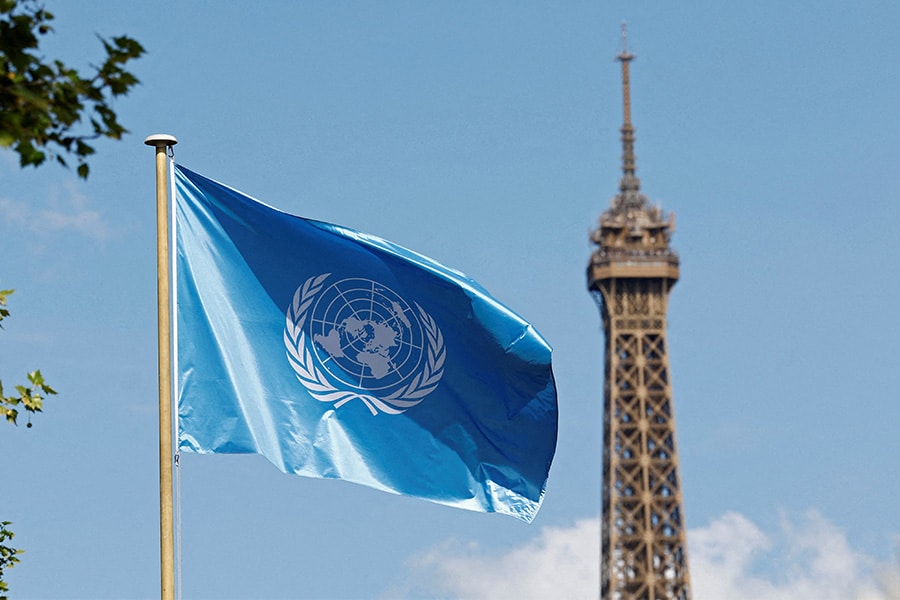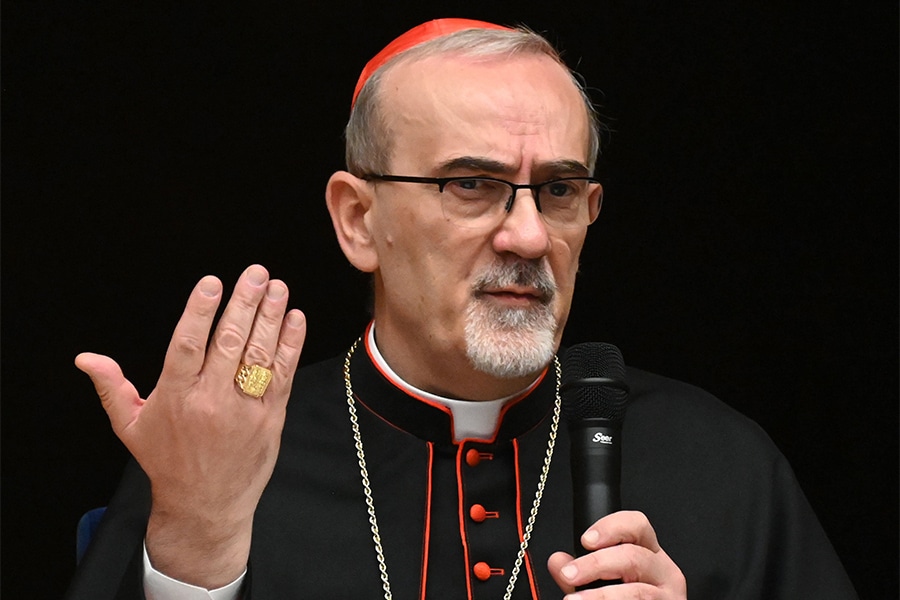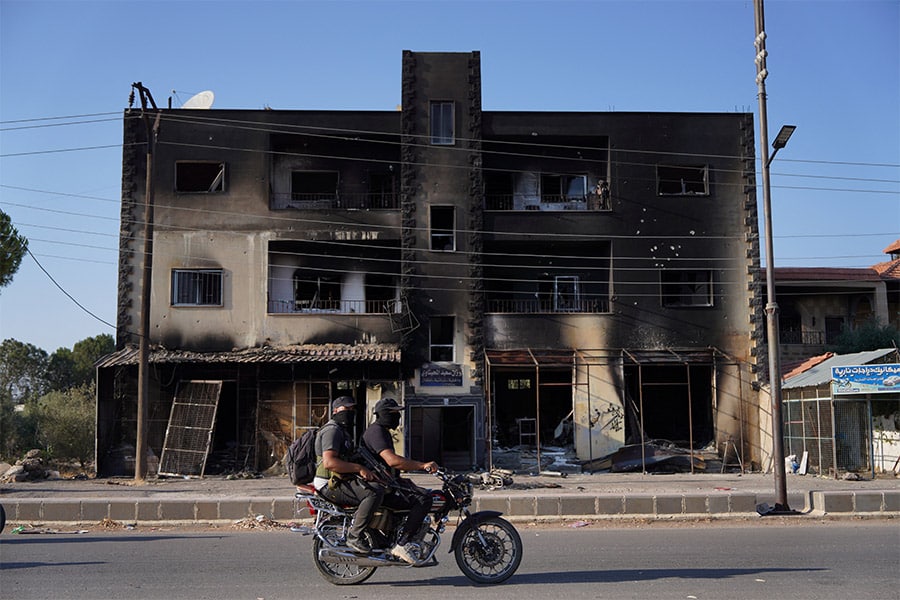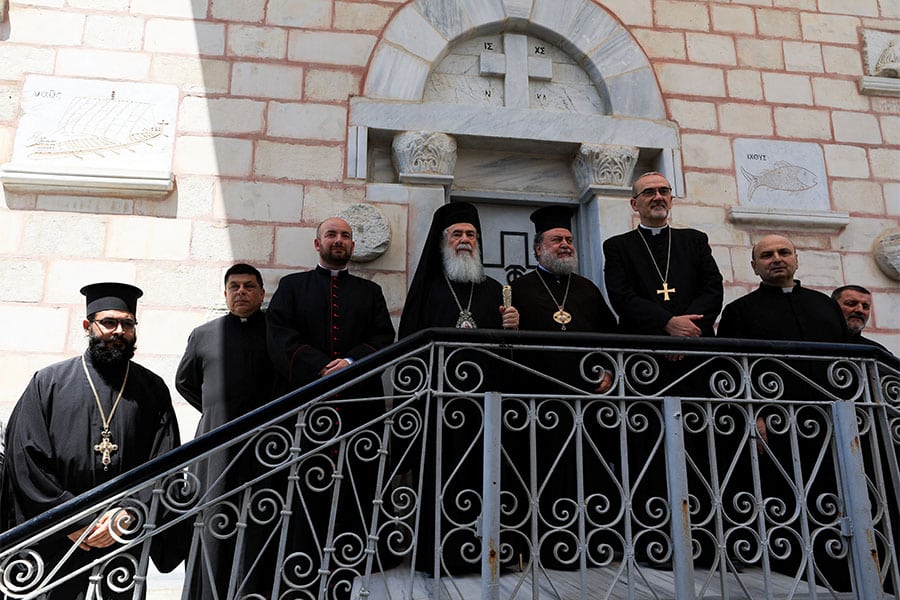JERUSALEM (OSV News) — The celebration of the Jewish New Year this Oct. 2-4 took place just ahead of the one-year anniversary of the Hamas attack on Israel and just after a new act of violence by the terrorist organization that left seven more people dead and 16 injured in Tel Aviv Oct. 1. Israeli police and emergency services described it as a “combined shooting and stabbing attack” on people taking public transportation.
Almost 100 families still await news of their loved ones who continue to be held hostage in the Gaza Strip after being abducted last year. Among those taken on Oct. 7, 2023, is Sagui, the 35-year-old American-Israeli who is the son of Jonathan Dekel-Chen. Sagui was wounded and kidnapped by Hamas as he joined Kibbutz Nir Oz’s emergency squad to defend the small southern agricultural community from onslaught. At the end of the day, 1,200 people were murdered throughout 45 communities, and 250 people were kidnapped, including women and children.
Since then, Sagui’s wife, Avital, has given birth to their third daughter, and Dekel-Chen has been pushing every day to see what he can do to bring about his son’s release.
It has been a year of “living hell,” he said.
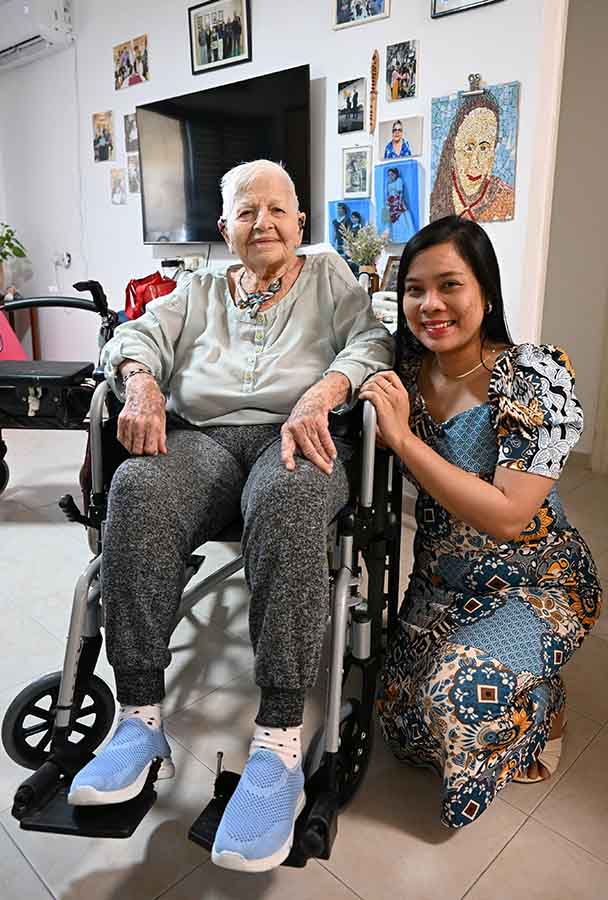
“Every morning is a challenge to remember that, despite it all, my job is to figure out how, on that given day, is it possible for me to do something that’s going to help in reuniting my son with his beautiful wife and his three little girls,” he told OSV News.
Dekel-Chen, a history professor at the Hebrew University in Jerusalem, was in the U.S. for an academic workshop last Oct. 7. His daughter, who lives in Nir Oz, survived the attack by barricading herself and her two children inside of the safe room in their home. Dekel-Chen’s two other children live outside the kibbutz.
As a counter-attack, Israel launched a military campaign into Gaza with the stated goal of gaining the hostages’ release and destroying Hamas’ infrastructure. The offensive left the Gaza Strip in ruins and created a humanitarian crisis that U.N.’s Secretary General António Guterres called “a moral stain on us all.”
According to the Hamas-run Gaza Health Ministry, which does not differentiate between combatants and civilians, more than 41,000 Palestinians have been killed in Gaza since the start of the war.
Nir Oz was among the hardest hit communities in Israel, with some 180 people from the kibbutz’s 400 members either murdered or abducted, and the kibbutz almost entirely destroyed physically. Dekel-Chen said 29 members of the kibbutz remain in captivity, including two children.
It has been a year of simply “putting one foot in front of the other,” Dekel-Chen said. The remaining members of the kibbutz now live in six separate apartment buildings in the southern city of Kiryat Gat and are struggling with going from living in a rural communal village to living in a divided urban setting.
“We lost our homes and we lost our way of life … So we have to figure out not just how do we deal with the fears and the grieving, but also what’s next for us as a community, as individuals, as families. We don’t have answers to any of these questions,” he said.
For Filipino caregiver Camille F. Jesalva, the past year has been one of reflection and of strengthening her Catholic faith. On that terrifying day in October, terrorists entered the home in Kibbutz Nirim, where she lived together with 95-year-old Nitza Hefetz.
Jesalva protected Hefetz as the terrorists entered the home, praying her rosary. The fourth time that Hamas militants entered the house, she offered them her cell phone and all her money that she had saved for her visit back home to see her then 5-year-old the following week.
“I can’t (believe) we are even alive. I can’t even imagine that day,” said Jesalva, 32, who now lives in a Jerusalem senior assisted living home with Hefetz and whose story appeared in the book “One Day in October,” which has just been published in English.
“I always pray every evening, but that day was a real trial for me to see how deep is my faith in God. I believe in him one hundred percent,” she said.
They were hiding in the safe room, but the door lock did not work, she said, and finally she let go of the handle and put her life into the hand of God.
“I kissed [a] picture of my son and said OK, take me. I am yours. I will feel the pain only once. … After that everything changed, and I faced them,” she said.
Though she considered returning to the Philippines permanently after her ordeal, Jesalva decided to return to care for Hefetz after a visit with her son. As the two women were hiding, she promised Hefetz she would not leave her, she said.
“If I leave she will die,” Jesalva said. “God made me realize the essence of life. I have to be strong and trust him more. He gave me that test and the realization, and my life changed so much for the better — about love, about life, family, work. From that dark place of [the safe room] we moved to the best place of light.”
This year, as Jesalva attends the memorial for the victims of Oct. 7 in the Philippines, where she is again traveling to visit her son, she will have the hostages in her heart, she said.
“It is so bad about the war. I hope it will be finished soon. Killing is not the way to solve problems, we need peace,” she said.
According to reports, 97 people remain in Hamas captivity — some no longer alive.
Dekel-Chen, along with the families of the seven other Americans still held in Gaza, continue to meet regularly with U.S. administration officials, including President Joe Biden.
An eighth American hostage, 23-year-old Hersh Goldberg-Polin, was one of six hostages killed by Hamas at the end of August as Israeli forces approached their location.
“It’s hard enough getting the Israeli government to [work on a deal], because it simply does not prioritize the welfare of the hostages … . It’s even harder, of course, to get an inhuman, savage, terrorist organization to [negotiate],” Dekel-Chen said.
“There’s surely a military side to this, but there’s also a diplomatic and global pressure side to it. And unfortunately, the international community has not stepped up enough to pressure Hamas in every possible way,” he said. “And only then, of course, our hostages might be released and we can get to a negotiated agreement — with the devil, there’s no question — but also the suffering of Gaza civilians will end.”
Dekel-Cohen said he feels the pressure of needing to work hard to bring the hostages home.
“Anyone who has any ability to think independently realizes that military pressure alone is not going to get our hostages home alive,” said Dekel-Chen. “For the last couple of months, we’ve seen that increased military pressure only results in the execution of hostages or their death by friendly fire.”
With fighting now expanded to Lebanon, Dekel-Chen said attention has already shifted from the issue of the hostages.
“That makes it more difficult to get our hostages home, but also risks an extremely dangerous situation for Israel. Most of the hostage families have been warning from the very beginning that not finishing this conflict in Gaza risks a regional escalation,” he said.
“We’re in a year in which [this] terrible, bloody conflict, which has taken the lives of far too many Palestinian civilians and has caused incalculable suffering on both sides, was ignited by an unprecedented terrorist attack on Israel, whose only purpose was destruction,” Dekel-Chen told OSV News. “At any point, Hamas could have stopped the conflict by releasing the hostages that it has. Israel would not continue to fight in Gaza if the hostages were released. Israeli public opinion wouldn’t allow it. But Hamas has not done that.”
Read More Conflict in the Middle East
Copyright © 2024 OSV News


